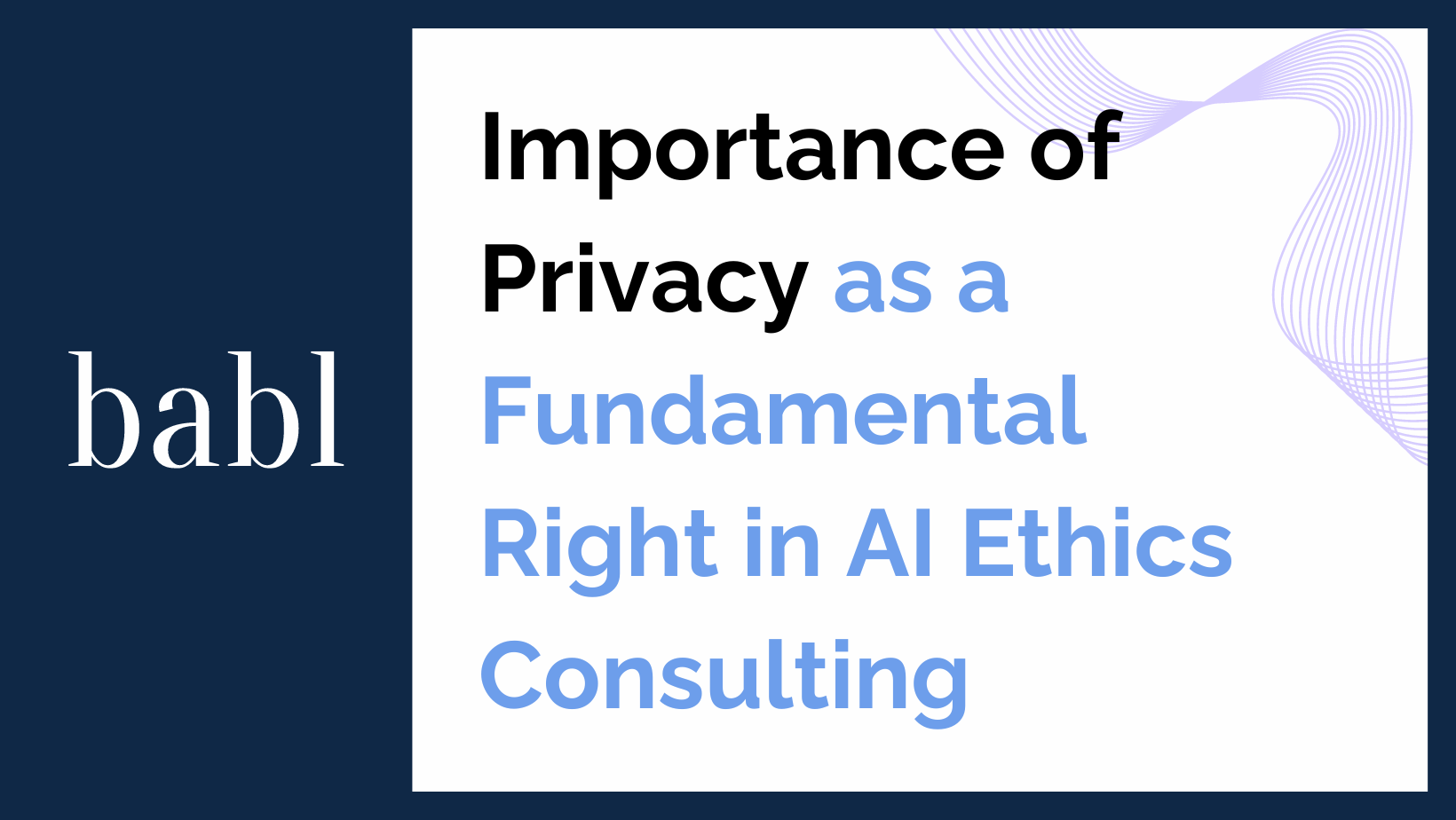Privacy is a fundamental right that holds significant importance in the realm of AI ethics consulting. In the context of rapidly advancing AI technologies, the protection of individuals’ privacy has emerged as a critical ethical consideration. AI systems often rely on vast amounts of data, including personal information, to function effectively. As such, ensuring the privacy of this data is essential to uphold ethical standards and respect individuals’ rights.
This is important because data privacy faces many challenges, especially with the rapid growth and proliferation of data in today’s world. Some of the common issues we see include data breaches and cyber attacks, data misuse, data abuse, data bias, data discrimination, and data surveillance that infringes on an individuals privacy and autonomy. This is why AI ethics consultants need to be actively involved while collaborating with various stakeholders about how data privacy and ethics work in AI.
AI ethics consultants play a pivotal role in advocating for privacy rights within organizations that develop and deploy AI systems. By emphasizing the fundamental nature of privacy, consultants aim to instill a culture of responsible data handling and privacy protection in AI initiatives. This proactive approach not only aligns with ethical principles but also helps organizations build trust with users and stakeholders by demonstrating a commitment to safeguarding sensitive information.
The ethical implications of privacy in AI systems extend beyond mere compliance with regulations. While legal frameworks such as data protection laws provide a foundation for privacy protection, ethical considerations delve deeper into the moral responsibilities of organizations and professionals in handling personal data. AI ethics consultants are tasked with evaluating the privacy risks associated with AI technologies, identifying potential vulnerabilities, and recommending strategies to mitigate these risks effectively.
In the context of AI ethics consulting, privacy considerations encompass various aspects of data processing, storage, and sharing. Consultants work to implement robust privacy measures, such as data anonymization, encryption, and access controls, to safeguard individuals’ privacy rights. By integrating privacy by design principles into AI systems, organizations can proactively address privacy concerns and mitigate the potential for data breaches or misuse.
Moreover, the ethical implications of privacy in AI extend to issues of algorithmic bias, discrimination, and transparency. AI ethics consultants must navigate complex ethical dilemmas related to the use of personal data in AI decision-making processes. By promoting transparency and accountability in AI systems, consultants can help mitigate the risks of privacy violations and ensure that individuals’ rights are respected throughout the AI lifecycle.
On the flip side, AI can help firm up data privacy and ethics. For example, AI can encrypt data to prevent and reduce the number of data breaches or cyberattacks on an AI system. AI can also be used to audit and monitor data to ensure there is no mishandling of data. The growing landscape of AI has opened up more than just security concerns, it’s opened up various avenues for innovation. It can enhance and empower individuals while helping them maintain and own their rights and data.
In conclusion, the importance of privacy as a fundamental right in AI ethics consulting cannot be overstated. Your personal data can be used, sometimes against you, without any control, but the good news is that these privacy challenges can be minimized at every stage. By prioritizing privacy protection, AI ethics consultants contribute to the ethical and responsible development of AI technologies. Upholding privacy rights not only aligns with legal requirements and ethical standards but also reflects a commitment to promoting trust, transparency, and accountability in the ethical use of AI systems.
If you have questions or concerns about AI, don’t hesitate to reach out to BABL AI. Their Audit Experts can offer valuable insight, and ensure you’re informed and compliant.





